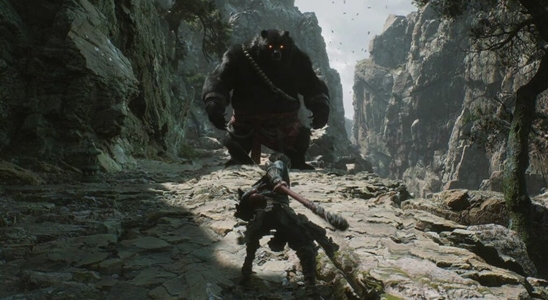
A passkey to the just-released and quickly popular single-player video game Black Myth: Wukong comes with a warning about what topics to avoid when video streaming the game.
Doubtless conscious of Chinese Communist Party officials peering over their shoulders, game co-publisher Hero Games, based in Beijing, has been telling streamers to avoid such topics as “ ‘feminist propaganda’ or ‘politics’ when they received a passkey to play the game, an email exchange showed” (The Hindu, August 22, 2024).
Other subjects to shun include COVID-19, isolation, quarantine, and “China’s game industry policies, opinions, news, etc.”
Benoit Reinier, a French video game content creator, said on Wednesday that he had received the guidelines and shared his email exchange with the firm’s representative. In a YouTube video, Mr. Reinier said he would not stream the game on his channel in response to the guidelines, [which] he described as “censorship”. “I have never seen something so shameful,” he said in the video.
But Chinese gamers have rallied to the game’s defence, with some painting any criticism of China’s first “Triple A” title—some of it focusing on the lack of diversity in the game—as evidence of foreign bias.
The second paragraph quoted above is something of a non sequitur, since Reinier was not criticizing the game but the attempt at censoring commentary on the game.
A lament about inadequate “diversity” does sound bogus, if this is the same kind of “diversity” that Western socialists and egalitarians who demand lockstep ideological uniformity and who scream at you in restaurants if you don’t comply go on about. Much more important than whether the game features “diverse” characters in its mythological, ancient Chinese setting is whether the game is fun to play. But the little-pinkish notion that “any” criticism of the game must be “evidence of foreign bias,” no matter the merit, is also meritless.
Reinier’s refusal to promote the game in a video stream given the CCP-inspired advisory is appropriate.
Alternatively, video streamers—at least streamers who do not reside in China and are not likely be hunted down and imprisoned for their words—could go ahead and get a passkey and stream the game, being sure in the voiceover to chat about feminism, politics, COVID-19, isolation, quarantine, and “China’s game industry policies, opinions, news, etc.”
The Chinese government has a strong interest in the success of the game. According to a New York Times article about the censorship controversy:
“The success of Black Myth: Wukong is not only a victory for the gaming industry, but also an important milestone in the overseas expansion of Chinese culture,” Yangcheng Evening News, a state-owned newspaper, wrote in an article.
The Department of Culture and Tourism in Shanxi Province released a video highlighting landmarks in northern China featured in the game. In another sign of its close ties to the state, the game’s publisher is Zhejiang Publishing & Media, a company majority owned by the Zhejiang provincial government.
The story, then, is about propaganda as well as censorship.











